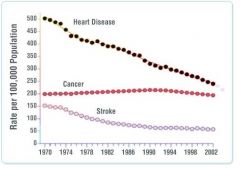AbbVie and Calico Announce a Novel Collaboration to Accelerate the Discovery, Development, and Commercialization of New Therapies
Calico to create a leading R&D facility in the San Francisco Bay Area focused on aging and age-related diseases, including neurodegeneration and cancer
AbbVie and Calico may co-invest up to $1.5 billion, utilizing Calico’s discovery and early development capabilities and AbbVie’s broad research, development, and commercial expertise to advance innovative new therapies
NORTH CHICAGO, Ill. and SOUTH SAN FRANCISCO, Calif., Sept. 3, 2014 – AbbVie (NYSE:ABBV) and Calico announced a novel R&D collaboration intended to help the two companies discover, develop and bring to market new therapies for patients with age-related diseases, including for neurodegeneration and cancer.
Calico is the Google-backed life sciences company led by Arthur D. Levinson, Ph.D. (former chairman and CEO of Genentech) and Hal V. Barron, M.D. (former Executive Vice President and Chief Medical Officer of Genentech). The agreement paves the way for Calico to establish a world-class research and development facility in the San Francisco Bay Area.
Under the agreement, the companies will combine their complementary strengths to accelerate the availability of new therapies for age-related diseases:
- Calico will use its scientific expertise to establish a world-class research and development facility, with a focus on drug discovery and early drug development; and
- AbbVie will provide scientific and clinical development support and its commercial expertise to bring new discoveries to market.
“This collaboration demonstrates our commitment to exploring new areas of medicine and innovative approaches to drug discovery and development that augments our already robust pipeline,” said Richard A. Gonzalez, Chairman of the Board and Chief Executive Officer, AbbVie. “We are pleased to be working with such outstanding scientists as Art Levinson, Hal Barron and their team. The potential to help improve patients’ lives with new therapies is enormous.”
“Our relationship with AbbVie is a pivotal event for Calico, whose mission is to develop life-enhancing therapies for people with age-related diseases. It will greatly accelerate our efforts to understand the science of aging, advance our clinical work, and help bring important therapies to patients everywhere,” said Art Levinson, CEO and founder of Calico.
Details of the Research Collaboration
- AbbVie and Calico will each initially provide up to $250 million to fund the collaboration with the potential for both sides to contribute an additional $500 million
- Calico will be responsible for research and early development during the first five years and continue to advance collaboration projects through Phase 2a for a ten-year period
- AbbVie will support Calico in its early R&D efforts and, following completion of Phase 2a studies, activities
- Both parties will share costs and profits equally
“We are thrilled to have the opportunity to work with the many outstanding scientists at AbbVie to ensure that the important science at Calico is advanced quickly to benefit patients,” said Hal Barron, M.D., President of Research and Development at Calico.
"We are extremely proud to have our research teams partnering with Calico as we aim to address treatments for diseases of aging,” said Michael Severino, M.D., Executive Vice President, Research and Development, and Chief Scientific Officer, AbbVie. "Our broad R&D experience and capabilities will complement Calico's biotechnology expertise and innovative scientific approaches. Together, we are confident that we will bring new therapeutic solutions to patients."
Calico expects to begin filling critical positions immediately, and plans to establish a substantial team of scientists and research staff in the San Francisco Bay Area.
About AbbVie
AbbVie is a global, research-based biopharmaceutical company formed in 2013 following separation from Abbott Laboratories. The company's mission is to use its expertise, dedicated people and unique approach to innovation to develop and market advanced therapies that address some of the world's most complex and serious diseases. AbbVie employs approximately 25,000 people worldwide and markets medicines in more than 170 countries. For further information on the company and its people, portfolio and commitments, please visit www.abbvie.com. Follow @abbvie on Twitter or view careers on our Facebook or LinkedIn page.
About Calico
Calico (California Life Sciences LLC) is a Google-founded research and development company whose mission is to harness advanced technologies to increase our understanding of the biology that controls lifespan. We will use that knowledge to devise interventions that enable people to lead longer and healthier lives. Visit www.calicolabs.com.




















































